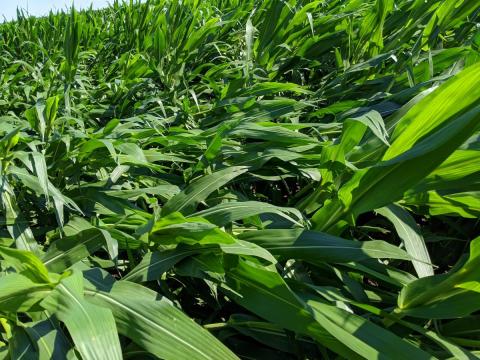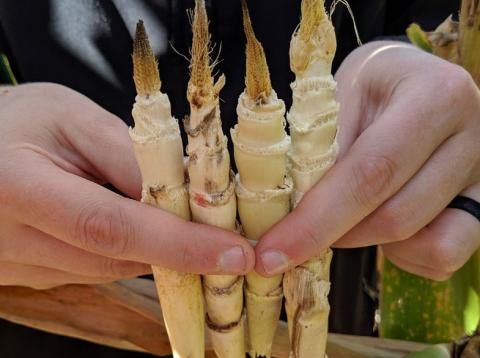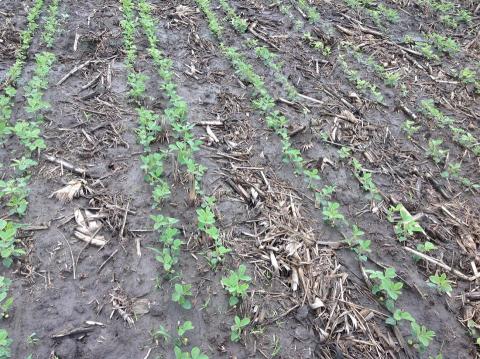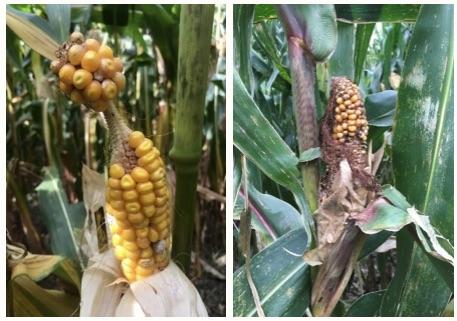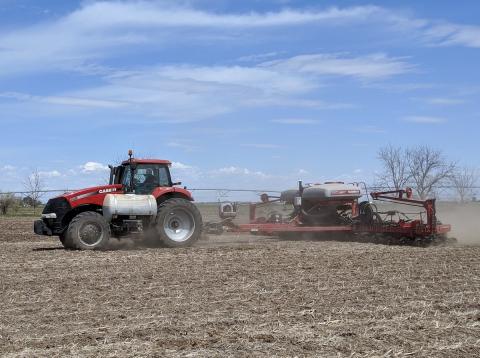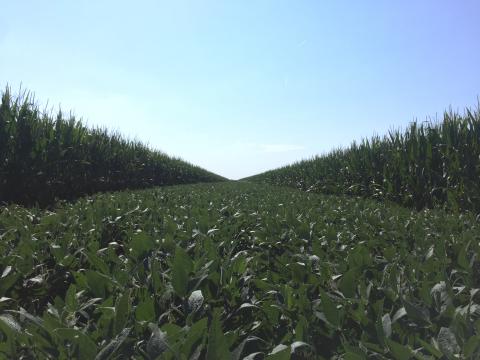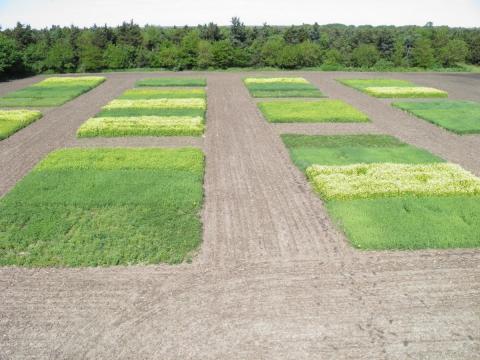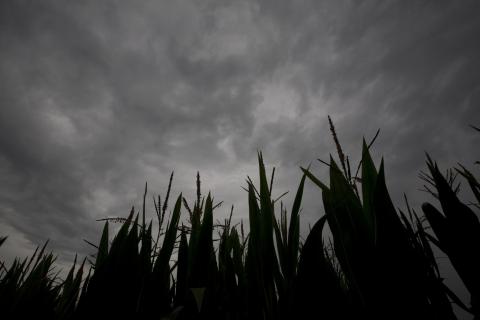Wind-Damage to Corn
July 16, 2020
Prior to storms July 8-9, plants were nearing tassel, a critical time for photosynthesis and pollination. These storms resulted in “flattened” corn from lodging/leaning in addition to bent and snapped plants. "Recovery" depends on a variety of factors.
Corn Ear Development Impacts from Post-emergence Pesticide Applications
June 4, 2020
Corn ear abnormalities have been noted the past few years. Tracing back the information on various field calls often pointed to a misunderstanding of proper growth stages when making post-emergence herbicide applications in addition to pre-tassel fungicide and insecticide applications.
Soybean Replanting Considerations
May 15, 2020
With the recent cold temperatures and frost in portions of the State, some are questioning the need to replant soybean. It’s important to assess potential recovery before making replant decisions. Soybeans are more resilient than one may think!
Planting Date Impact on Corn Growth and Ear Issues
May 14, 2020
Despite the above-average yields in recent years, there has been reports of ear formation issues in corn that ranged from sites in the Texas Panhandle, Colorado, Nebraska, Iowa, and Illinois. Does planting date play a role?
Corn and Soybean Planting Considerations for 2020
April 22, 2020
Everything we do at planting sets the stage for the rest of the year. With tight economics, it’s important to make wise decisions with the factors we can control during planting season.
Yield Penalties for continuous Corn and Soybean in the Midwest, US
April 8, 2020
Soybean and corn are the most commonly rotated crops in the Midwest, United States. Rotation benefits are well documented for both crops.
Spring-planted Cover Crops for Weed Control in Organic Soybean
March 25, 2020
Weed control in organic soybean usually includes frequent pre-plant tillage operations but spring rains often make it difficult to get into the fields for timely tillage. As a result, weed pressure can be high. Cover crops can help suppress weeds, but after corn harvest it is often too late to establish cover crops. Spring-planting cover crops may be an alternative to fall-planting.
Corn and Clouds: “…from both sides now…”
November 6, 2019
Solar radiation and temperature data for the third week of August in central Nebraska indicates it likely contributed to the lower-than-expected yields being reported by many growers this year.


